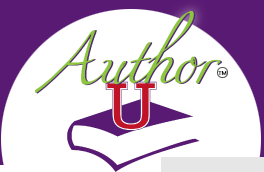What’s stopping you from being a brilliant writer?
Time and again, readers and clients tell me they don’t have enough time to post on their blogs, that finding the time to write is a huge challenge.
I don’t doubt that. I encounter this myself.
And when we drill down to the reasons, it usually turns out to be something other than lack of time. It’s lack of inspiration, lack of confidence, lack of desire to face a task that brings up fear of exposure.
…Because writing is hard. Nobody has time for tough tasks that make you feel inadequate.
Writing, either for your blog or website, or for articles or ebooks, is a tough assignment.
And it doesn’t matter whether you’re doing it for yourself or someone else. You may be an independent professional who’s trying to get a strong online presence, or employed and in charge of creating content for marketing for a company.
Either situation, writing is hard. And here’s why.
Every time you sit down to a blank screen, you’re faced with inner critics that say things like “What the heck do you have to say that hasn’t already been said?”
Your lizard brain kicks in, and tells you to flee off to some other task that’s sure to bring in better rewards in a shorter time.
Writing is hard.
You can’t get better at it without doing it over and over, rewriting, reworking it. Yet your brain tells you just get on with it, write 300 words, slap it up on the blog, and go do something else, like sales or client work. Something more tangible. Something that has measureable results.
You forget that a quality post with good stories and information will pave the way for sales, will make your work with clients smoother because they will trust you.
You forget it because in order to build that trust, you’ve got to write frequently, publish often, and make your writing good.
But writing is hard because you don’t think you’re a good writer, or maybe you think you’re good enough, just not brilliant.
Writing is easier than you think.
Ten years ago, I had one way of writing that was passable, in the sense that I sold articles to other professionals. Today, I have a different way of writing that is much better. Sometimes it’s brilliant, other times, it’s still just passable.
Writing is easier for me today and I’m more successful because I put the time in that’s required to get good at it. So how do you make it less painful?
I’m going to give you a few key pointers.
- Writing is emotional work. You can’t become a brilliant writer without connecting emotionally with your readers. To do that you need to know your readers. You need to use emotional words, triggering emotional responses. Writing is one part information, and a big part connecting, pushing buttons and inspiring.
- Writing is brain work. It requires flexing your pre-frontal cortex. You need to foresee the consequences of your sentences in the minds of your readers, predict their objections and questions. One of the things that sets the human brain apart from those of lower animals is our ability to plan for the future. So start using that quality more often.
- Writing is labor intensive. I used to encourage people to write quickly and publish on their blogs in under 30 minutes. While that is still possible, if you seek out quality, it’s better to let a post simmer for a day before publishing, giving you time to edit twice: once for grammar and relevancy, and once for entertainment value.
- Writing is simple. I know I just made the opposite case, but here’s how you need to think in terms of simplicity:
o Start with a question about a problem
o List 3-5 key points to a solution
o Elaborate or explain each
o Illustrate with stories from clients or yourself
o Suggest an action
o End with a question
The key is to keep in mind your goals: how can you build trust, provide information readers can use, remind them of how they can get more access to you or your products?
Yes, writing is both hard and simple. It gets easier the more you practice and publish. I will ask you this question again:
What’s stopping you from practicing to become a brilliant writer?
Is it the emotional work, the brain work, the editing? What is it that makes it hard for you?














Recent Comments